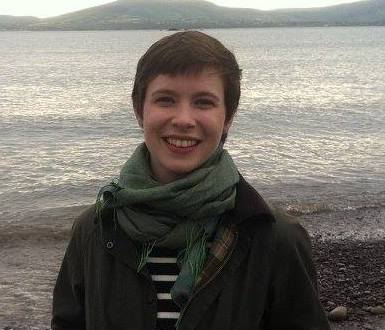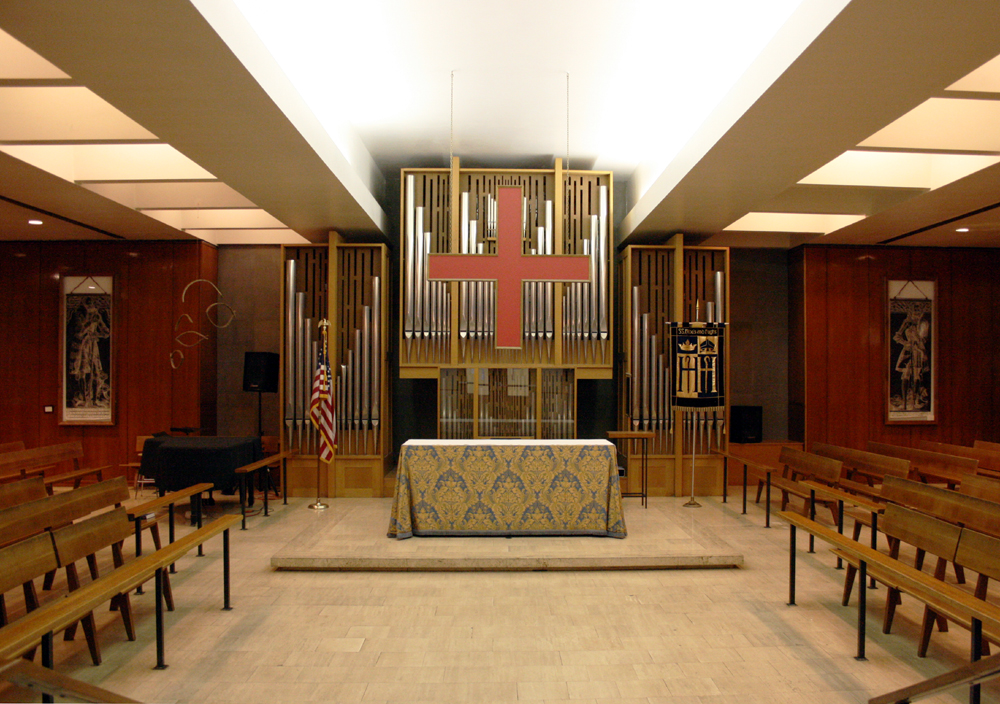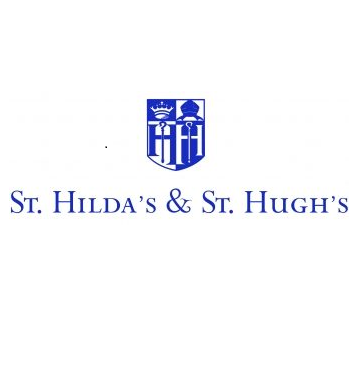Field education at Union provides an opportunity for students to bring together their education, skill, and religious commitment in a way that can help them discover their call. Students do their field work in a wide variety of locations, from churches to shelters to non-profit organizations.
Hope Fried, a second-year M.Div. student, is doing her field placement at St. Hilda’s and St. Hugh’s, an Episcopal school on the Upper West Side.
What is your field site and what do you do there?
I work at St. Hilda’s and St. Hugh’s, a private Episcopal school near Union. It’s a pre-K-8 school and this is my second year there. I’m a Religious Knowledge Educator, which is a fancy way to say “teacher.” I’m also a chaplaincy intern, so I lead weekly chapels and run religious holiday services.

Do you serve students of all faiths?
Yes, we do. I work with the school chaplain, Pastor Arden Strasser. He’s a Lutheran pastor, I’m a Jewish-identified chaplain, and together we teach about and serve communities of all faiths. St. Hilda’s is an Episcopal school, so we use the traditional hymnbook and our daily chapels have a simple Christian arc to them, but we are very intentional about serving students of all backgrounds. We’re definitely making advances in that regard; it’s something that I’m always working to improve at.
What are some of those advances or changes that you’re making?
I think it’s about embracing the traditions and the identity of St. Hilda’s and St. Hugh’s on one hand – it was founded by Mother Ruth in the 1950s, we have beloved characters in our history – and on the other hand understanding that we live in New York City, on the Upper West Side, where we have students and families of all faiths or no particular faith. We need to be intentional about our language and how we talk about and include different faiths.
For example, we have a giant Christmas pageant every year. We also celebrate Kwanzaa and Hanukkah, but the Christmas pageant is a big deal. Children play instruments, sing, make costumes, and more; it takes over the whole school for a month. We’re thinking it through with teachers and administrators: What is the message behind this tradition, how do we communicate about it with families, and how can we support kids who don’t celebrate Christmas when they’re working on the pageant every day?
How do you provide pastoral care in this context?
I’m feeling more and more comfortable with how my two roles blend together. There are moments when I have to put on more of the teacher role or more of the pastoral role, but most of the time it feels pretty effortless. Pastoral care happens everywhere. It happens in the hallways, at recess, at lunch… from the moment I enter the school, I’m “on” and looking to see where people need care. The youngest children will run up to me and initiate those moments. For the older kids, I take care to be in tune with what’s happening in their lives: for instance, eighth graders are a stressful period right now as they start to apply for high school. I try to make sure that they know I’m available for them and follow up with kids if I notice that something seems off. It even happens in the classroom. Sometimes we’ll be talking about a theological concept, someone says something that sparks a whole conversation, and I’ll deviate from the curriculum to just sit down and address what’s come up and how people are talking about faith.

How has Union prepared you for this role?
I took Introduction to Interreligious Engagement with Professor Rhodes in my first year, which helped me think about dominant white Christian culture. St. Hilda’s is a wonderful school that is predominantly white and Christian, and as a Jewish-identified chaplain, I think of it as an interreligious engagement experience for myself. Since I’m in a position to advocate for others, I try to be aware of interreligious issues that can arise.
How has this work shaped your own religious or spiritual identity?
It affirms my desire to be a chaplain. When I started at Union, I knew that I wanted to study and work in interreligious engagement. My work at St. Hilda’s encourages me to continue on that path. As someone who is Jewish-identified and spiritually seeking, it further supports that search. I’m constantly being exposed to new ideas and ways of thinking, and the Hybrid FE/CPE Program gives me time and space to reflect. It’s always too much stuff to process – in the best way. My site is a wonderful place to be pushed theologically and spiritually. I’m always thinking, what do I need to do in order to provide care for other people, for myself, and for the people I care for?
One question that’s always on my mind is my own identity. As somebody who no longer identifies with a specific religious practice, this work has made me realize the importance of being grounded in something. In the Introduction to Interreligious Engagement class, Professor Rhodes said that you can’t do interreligious engagement if you don’t have anything to stand on. What do I actually believe? I’m pushing myself to verbalize it, begin to write it down, and really live in it so that I can do what I set out to do.
 How does your work at this site connect to your vocation or goals?
How does your work at this site connect to your vocation or goals?
One of the main reasons I came to Union was to be a chaplain. I grew up on the campus of Phillips Academy in Andover, Massachusetts, and we had an amazing chaplain, Philip Zaeder. I remember being seven or eight years old, seeing him, and thinking, “I don’t know exactly what he does but I feel like I could do it too.” I just thought of him as a kind person who sat with people, and I thought, “I could be a kind person who sits with people.” As simple as that sounds, it’s been an idea that I’ve always come back to. So having the opportunity to be in a school, continue to teach, and act as a chaplain feels incredible.
Anything else?
As a child, I didn’t go to a school that taught religious knowledge, so talking about religion with young kids felt strange at first. I’ve realized, though, that whether you practice a faith or not, religion is everywhere. Without some understanding of religion, you can’t fully appreciate literature or engage with history. Some of my students are studying Manifest Destiny right now, for instance. If you don’t know the first thing about Christianity, you can’t fully understand that ideology. By teaching religious knowledge, we give these children amazing literacy with so many applications. We need people with tools, understanding, and appreciation of different religions, and I feel great about being a part of that.
I used to teach at a progressive private school where we weren’t allowed to talk much about religion because of the idea that school and religion should be separate. If we cut it out completely, though, we’re denying reality. There’s something beautiful about how it can create community, too. We have chapel services every day and they’re only ten to fifteen minutes long, but there’s so much beauty and power in coming together, singing songs, listening to somebody talk about something they’re passionate about, whether it’s religious or not, and sharing a moment of silent meditation or prayer. That’s something that so many children miss out on because religion is scary and schools don’t want to offend anyone! There’s always room for growth, but if you can bring in religion in a way that is inclusive, there’s something really beautiful about that.
